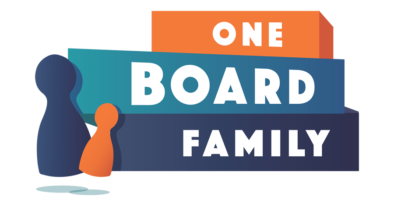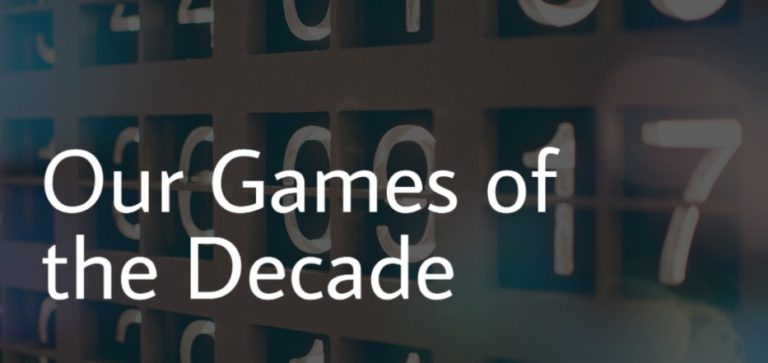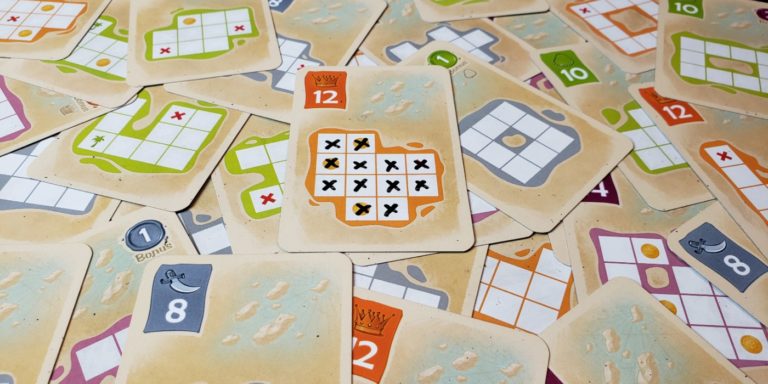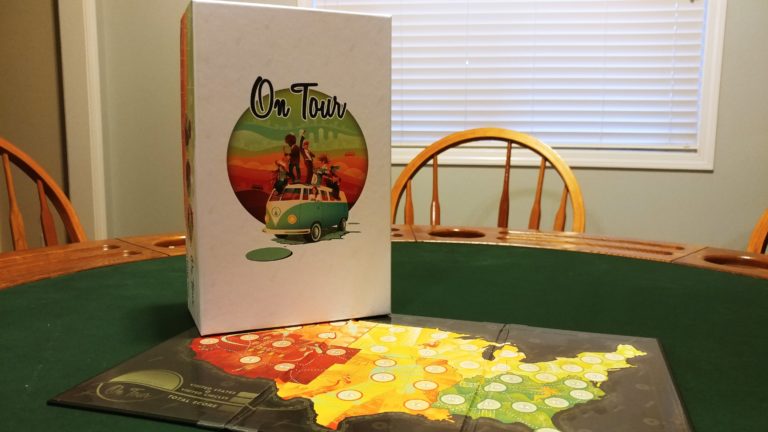
I want to start with the obvious point that not everyone’s job allows for taking time to play games in your workplace. I can only speak of the work environments I’ve been a part of and the environments that my friends and family are in. Back in 2017 I shared the how we took an idea of playing Formula D at lunch grew into some of the best relationships I’ve had with my co-workers.
Recently our friend Brandon shared that it would be great to get some tips on how people can bring gaming into the workplace. We know that this won’t be a hit for everyone, but this is what we’ve learned and had success with in our context.
1. Start Small
Our gaming group at work came about because I brought in a copy of the card game Monopoly Deal. After a conversation in the breakroom, two other co-workers wanted to play during lunch. It was just 3 of us but we had a great time.
After a couple days, other people asked about the game and wanted to check it out. Slowly people jumped in and we stuck with the same game in those early days. Co-workers got competitive and there was always smack talk as we ran into one another during the workday.

It’s tough to build good relationships with a large amount of people at once. I think the quality of the relationships has been great as this group has grown. Some of these co-workers love board games and some have just recently found this hobby. Value the quality of the group over the size of the group and you’ll have a great time.
2. Bring Games for Them, Not You
Even though I love most games, I definitely have a preference when choosing to play something. The games that I bring to work are not always the games that I love, but they are games that my co-workers connect with. A good example has been the game Harbour. While I’m a big fan of this one, a couple people at work really didn’t care for it after bringing it to lunch a couple times. Now, I could say, “well 50% of us like it and that’s what we’re going to play” or I can bring something like Kokoro or Space Park which seems to always get a good response when I bring them to lunch.
As you bring different games to work, you’ll start to find the ones that connect with your co-workers. Many times I’ll bring two options of games. One that plays well at 3 or 4 players and another that supports 6 or so. The point is that I take my co-workers play styles into consideration each and every time I grab a game from the house.

Another thing to consider is having some “staple” games around the office. We keep copies of The Mind, Forbidden Island, Fluxx, Harvest Dice and other small games at work. Keeping a couple games around the office means there is always something to play at lunch.
3. Be Accessible
Remember high school? Yeah, you may have gotten chills when reading those words. The social hierarchy of a high school lunchroom is evidence that people are terrible.
It’s probably more comfortable to grab a table in a dark corner somewhere so our nerdy games aren’t on display. I would argue against doing this. In our work cafeteria, we choose to play in an area where anyone can walk up, ask questions or just see what we’re playing. Our table is open to anyone and everyone. If a person we don’t know is looking around, one of us tries to engage in conversation and welcome them to the table.
We know that gaming isn’t for everyone, but we’re creating an atmosphere that is welcoming and open to anyone in our workplace. In your workspace, you may not have a large cafeteria area so this may look very different for you. If a person asks about the games that are being played at lunch, don’t bombard them with titles and mechanics. Simply share that you’re taking full advantage of making time for something fun during the work day.
4. Filler Games Galore
Because of our lunchtime gaming, my collection of “filler games” has grown substantially. Games that take around 20 minutes are great for gaming at work. Often one person will be running a couple minutes late and or someone has to heat up their meal before they jump into a game. While we usually get an hour for lunch, that’s not always the case when we have a lot going on at the office.
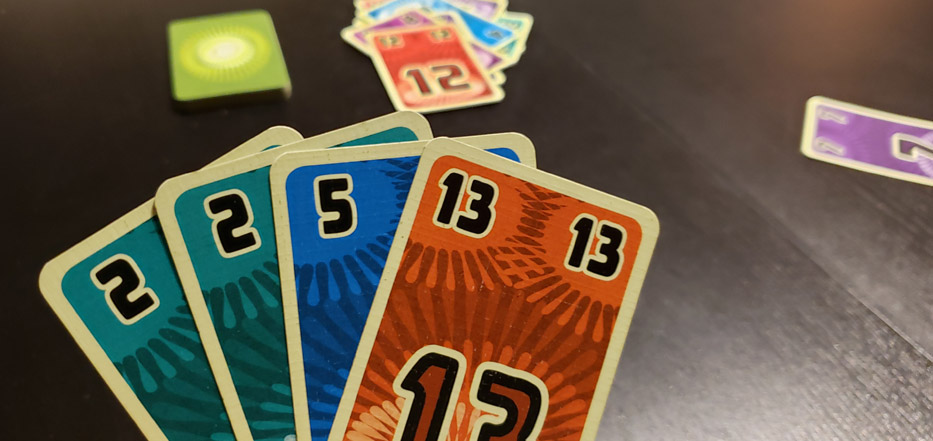
We’ve found that card games like Fuji Flush, Ladder 29, Monster Crunch and Bugs on Rugs are quick, fun and not too hard to teach. When we feel like grabbing a game with a little more strategy, we’ll grab Welcome To, Arboretum, Shikoku or Reef.
Roll & Write games work really well and finding quicker versions of popular games (Ticket to Ride: New York in place of traditional Ticket to Ride) have been a great fit. Those 20 to 30 minute games are the sweet spot of inserting gaming into the work day.
5. It Was Never About the Games
Over the past 5 years we’ve played a lot of games, had lots of laughs and have enjoyed healthy competition. The community that games together during lunch has grown and it’s always tough when some of these co-workers leave. Earlier this year, half of the crew that game with us during lunch were moved to another office across town. It’s tough when stuff like this happens. Because of the time we’ve spent gaming at lunch, we’ve been more intentional reaching out, checking in and inviting one another to special events that are happening in our lives.
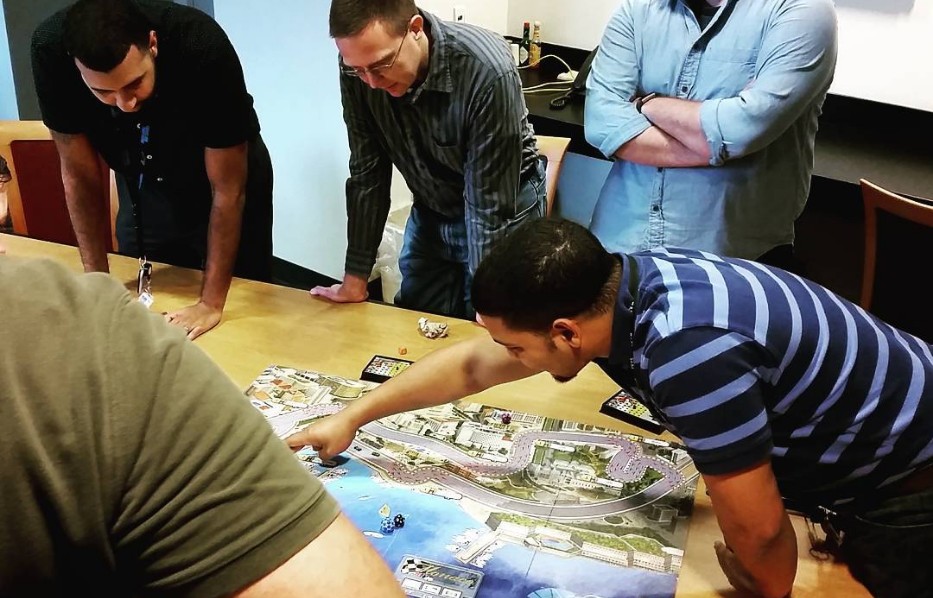
We build relationships and bonds around the game table. We share a slice of our life with these people. The relationships that started because we wanted a break in our work day have become friendships that expand outside the workplace. If you choose to start a gaming group at work, be ready to invest in the people. There will always be people that just show up to game or have fun for an hour. But, more often than not, people are looking for deeper connections than standing around the coffee maker and talking about their weekend.
For your workplace, taking time to game may look very different. For a teacher, this may mean you play a short card game once a week after school once the kids have left for the day. For someone who works night shift, you may only have 2 or 3 people that can play a game in a breakroom. If you’re already gaming with your co-workers, we’d love to hear about how you are making this happen.
Feel free to share your tips and ideas for starting a gaming group in the context of your job in the comments below.
